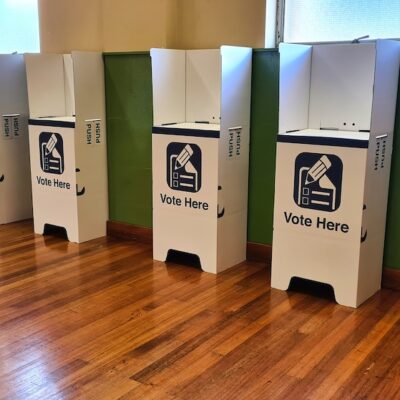The advancement and sophistication of technology has generated contentious debate about whether robots can displace the jobs of humans. The legal system has a long history of tradition and change often occurs at a slower pace in such institutions. To modernise our current legal system, there have been ongoing efforts to incorporate enhanced technologies such as artificial intelligence (‘AI’).
An interesting question is how novel technologies like AI can be adopted by such an ancient legal system. US Consultancy group, McKinsey, estimates that 22% of a lawyer’s job and 25% of a law clerk’s job can be automated.[1]
AI can significantly streamline legal work, making it more efficient in practice management through document review and legal research. This can even out the playing field for smaller firms by providing them with greater access to resources that were only previously available to larger firms. Widely used in legal research, services such as Westlaw Edge uses a semantic search,[2] whereby the AI algorithms attempt to understand the meaning of the words, rather than matching keywords in the documents that a user is searching for. This means that with every search, the greater forces of AI are learning what these obscure legal terms mean. Quick Check, another software that uses AI can analyse a draft argument that identifies authority that may have been missed or when a case cited has been overturned.[3] Such efficient tools are perhaps what the legal profession requires to continue to evolve for the better.

GPT-3, a program created by OpenAI, and more recently ChatGPT (a program built on top of GPT-3) are prophesied to make a big impact on the legal profession.[4] These programs can generate human-like text responses to given prompts.[5] Whilst not a suitable substitute for lawyers, being prone to errors in legal conventions,[6] the technology has the potential to provide rough drafts for lawyers. The fundamental problem with these programs, however, is that they are not “trained” to be a lawyer.[7]
However, one US company, DoNotPay, is purportedly retraining AI to know the law by sending it to law school. Browder, owner and CEO of DoNotPay, announced that a robot lawyer powered by AI was set to test the role of a lawyer in a court case for the first time.[8] DoNotPay is testing two speeding ticket appeals cases scheduled to take place in February. One is being conducted in person and one is through a Zoom trial. The AI program runs on a smartphone, listens to arguments in the courtroom and then formulates responses for the defendant, which it communicates via a Bluetooth earpiece. Browder hopes to democratize legal representation, making it free for those who cannot afford a lawyer to represent them. He hopes to prove through this test that courts should embrace technology rather than impose restrictions on its use. Although this experiment will not be proceeding after being threatened by the State Bar prosecutors, it is interesting to see the functionality of robots in the courtrooms.
Legal performance is often context-specific. The law varies by jurisdiction and the body of law is constantly changing.[9] Since AI uses pre-trained parameters, the program runs the risk of amplifying bad, outdated legal work as much as good.[10]
This technology, under the current NSW Court rules, would not be permitted. It is an offence to use audio recording devices in courtrooms and court premises.[11] Phones must also be switched off before entering courtrooms. [12] Therefore, the way DoNotPay operates by listening to court proceedings before formulating responses would not be allowed. Browder’s vision, to replace some forms of lawyers and make legal representation free seems a long way away.
AI is far from perfect, so it is unlikely that it will completely replace lawyers. A great risk to AI is the illusion of objectivity when there are embedded biases in the algorithms.[13] For example, some programs have been demonstrated to discriminate on the grounds of race. [14] This is all the more dangerous as how an AI arrives at results is not easy to understand. Moreover, AI is weak in areas requiring emotional intelligence,[15] making it better suited for some areas of law and not others. Where negotiating deals, mediating disputes and managing clients are involved, human judgement will always be more effective.[16]
Therefore, while AI can be utilised to ameliorate the efficiency of legal processes, automate routine tasks, and provide better access to legal services, the legal profession still requires a human touch, specifically when it comes to interpersonal skills and emotional intelligence that cannot be trained or replaced by technology. Legal work frequently entails complex ethical and moral questions that are best addressed with human judgment.
Undoubtedly, technology plays a pivotal role in the legal profession, and it puts forward different attributes, abilities, and strengths to the table. AI can augment human intelligence, but ultimately should not be expected to replace it. The future of the legal industry requires both forces to evolve and work together for a more efficient and just legal system.
[1] Erin Winick, ‘Lawyer-Bots Are Shaking Up Jobs’, MIT Technology Review (online, 12 December 2017) < https://www.technologyreview.com/2017/12/12/105002/lawyer-bots-are-shaking-up-jobs/>.
[2] Matthew Stepka, ‘Law Bots: How AI Is Reshaping the Legal Profession’, business law today (online, 21 February 2022) <https://businesslawtoday.org/2022/02/how-ai-is-reshaping-legal-profession/>.
[3] Ibid.
[4] Nicole Black, ‘ChatGPT: What It Is And Why It Matters To Lawyers’, Above The Law (online, 19 January 2023) < https://abovethelaw.com/2023/01/chatgpt-what-it-is-and-why-it-matters-to-lawyers/>.
[5] Nicole Black, ‘ChatGPT: What It Is And Why It Matters To Lawyers’, Above The Law (online, 19 January 2023) < https://abovethelaw.com/2023/01/chatgpt-what-it-is-and-why-it-matters-to-lawyers/>.
[6] Ibid.
[7] Matthew Stepka, ‘Law Bots: How AI Is Reshaping the Legal Profession’, business law today (online, 21 February 2022) <https://businesslawtoday.org/2022/02/how-ai-is-reshaping-legal-profession/>.
[8] Megan Cerullo, ‘AI-powered “robot” lawyer will be first ever to take court case’, CBS News (online, 24 January 2023) < https://www.msn.com/en-us/news/technology/ai-powered-robot-lawyer-will-be-first-ever-to-take-court-case/ar-AA169mvp>; Bailey Schulz, ‘DoNotPay’s “first robot lawyer” to take on speeding tickets in court via AI. How it works’, USA Today (online, 9 January 2023) <https://www.usatoday.com/story/tech/2023/01/09/first-ai-robot-lawyer-donotpay/11018060002/>; Lauren Leffer, ‘DoNotPay’s “Robot Lawyer” Is Gearing Up for Its First U.S. Court Case’, Gizmodo (online, 8 January 2023) <https://www.gizmodo.com.au/2023/01/donotpays-robot-lawyer-is-gearing-up-for-its-first-u-s-court-case/>.
[9] Ibid.
[10] Ibid.
[11] ‘Security in court’, Communities and Justice (Web Page, 24 January 2023).
[12] Ibid.
[13] Matthew Stepka, ‘Law Bots: How AI Is Reshaping the Legal Profession’, business law today (online, 21 February 2022) <https://businesslawtoday.org/2022/02/how-ai-is-reshaping-legal-profession/>.
[14] Matthew Stepka, ‘Law Bots: How AI Is Reshaping the Legal Profession’, business law today (online, 21 February 2022) <https://businesslawtoday.org/2022/02/how-ai-is-reshaping-legal-profession/>.
[15] ‘Lawyer vs AI: A legal revolution’, LexisNexis (Web Page, 19 April 2018) < https://www.lexisnexis.com.au/en/insights-and-analysis/practice-intelligence/2018/Lawyer-vs-AI-A-legal-revolution>.
[16] Ibid.
*Disclaimer: This is intended as general information only and not to be construed as legal advice. The above information is subject to changes over time. You should always seek professional advice before taking any course of action*.

















